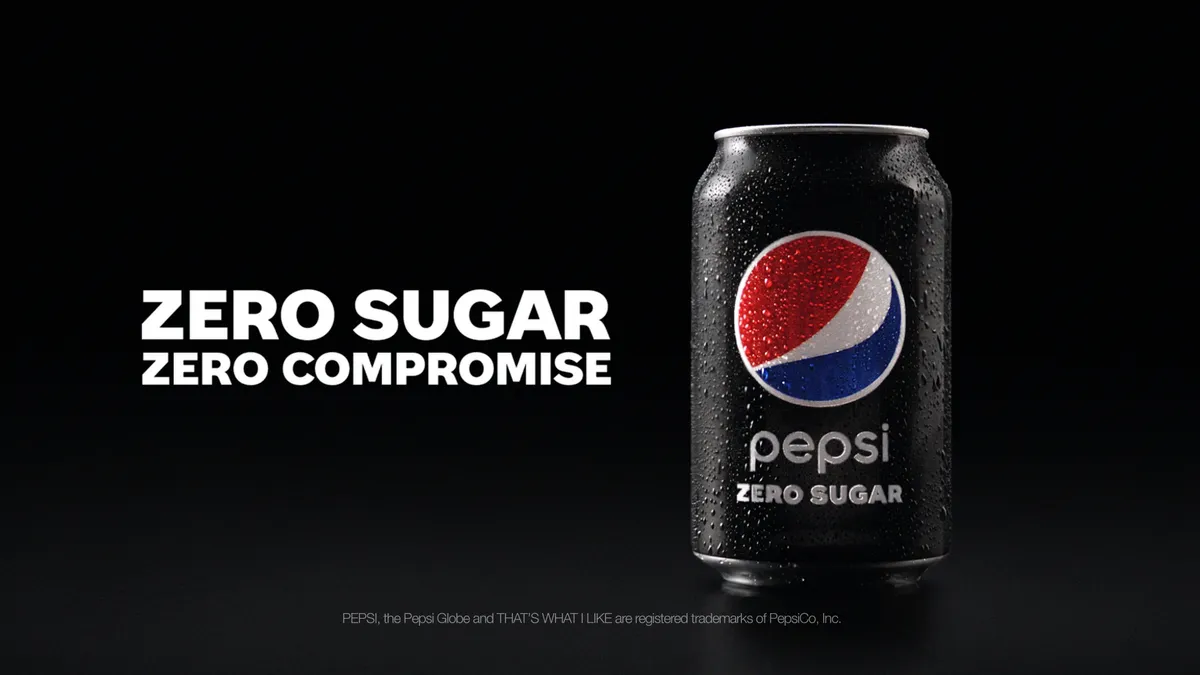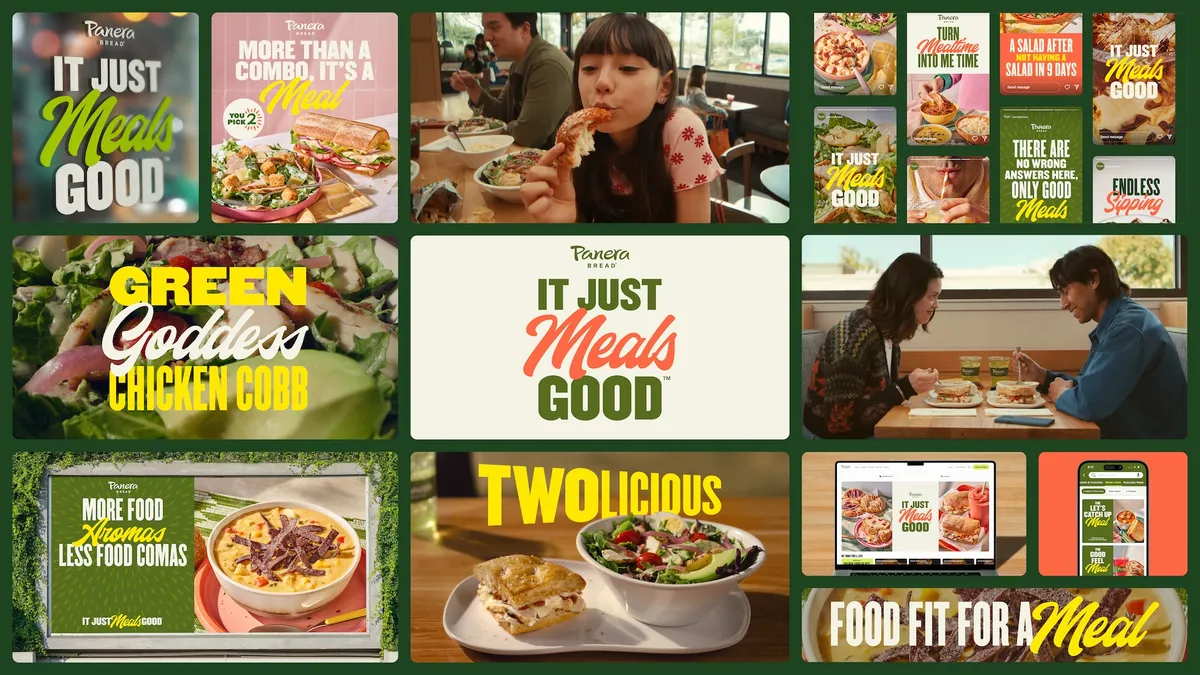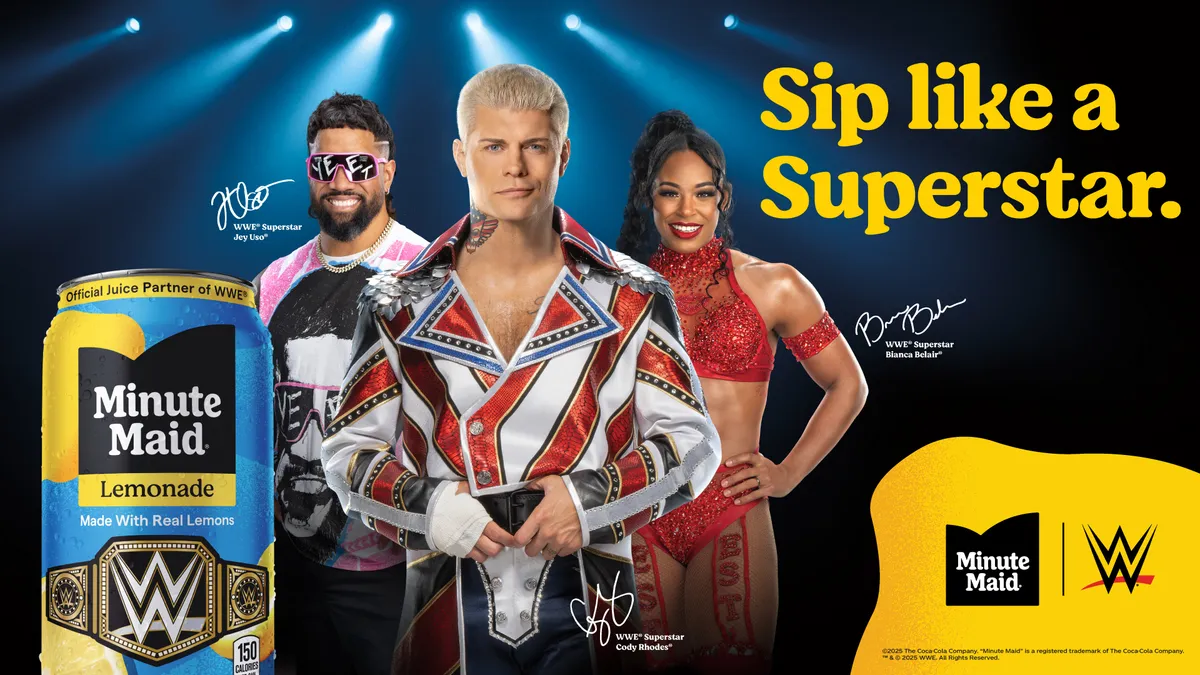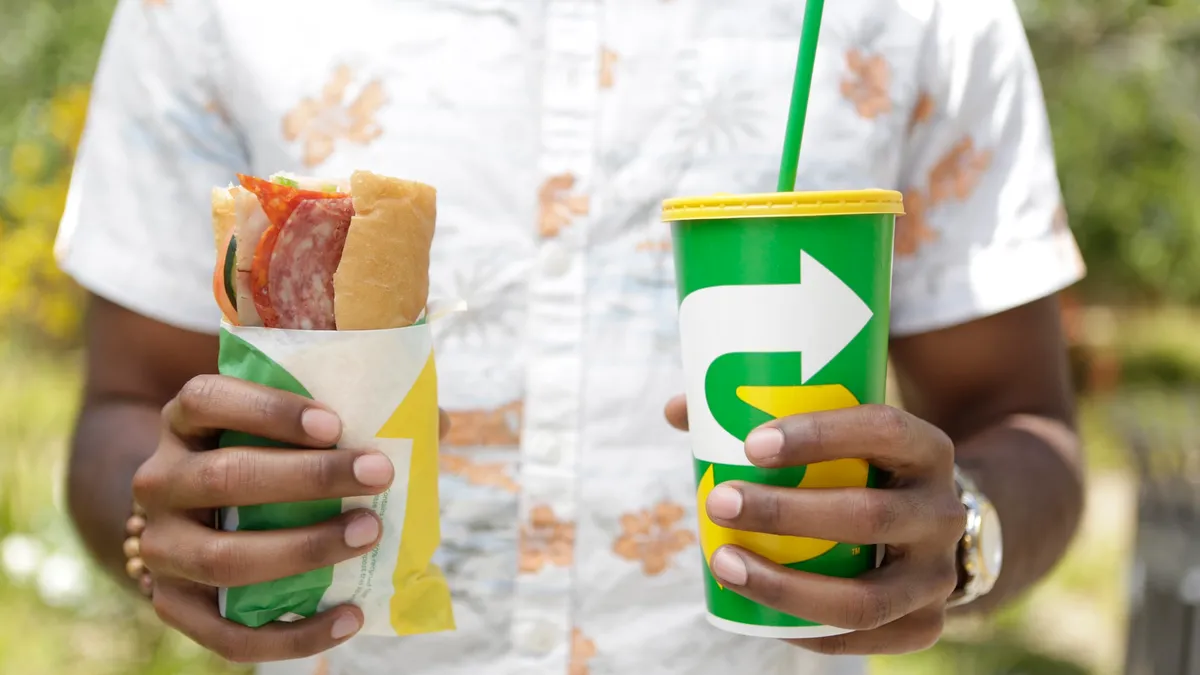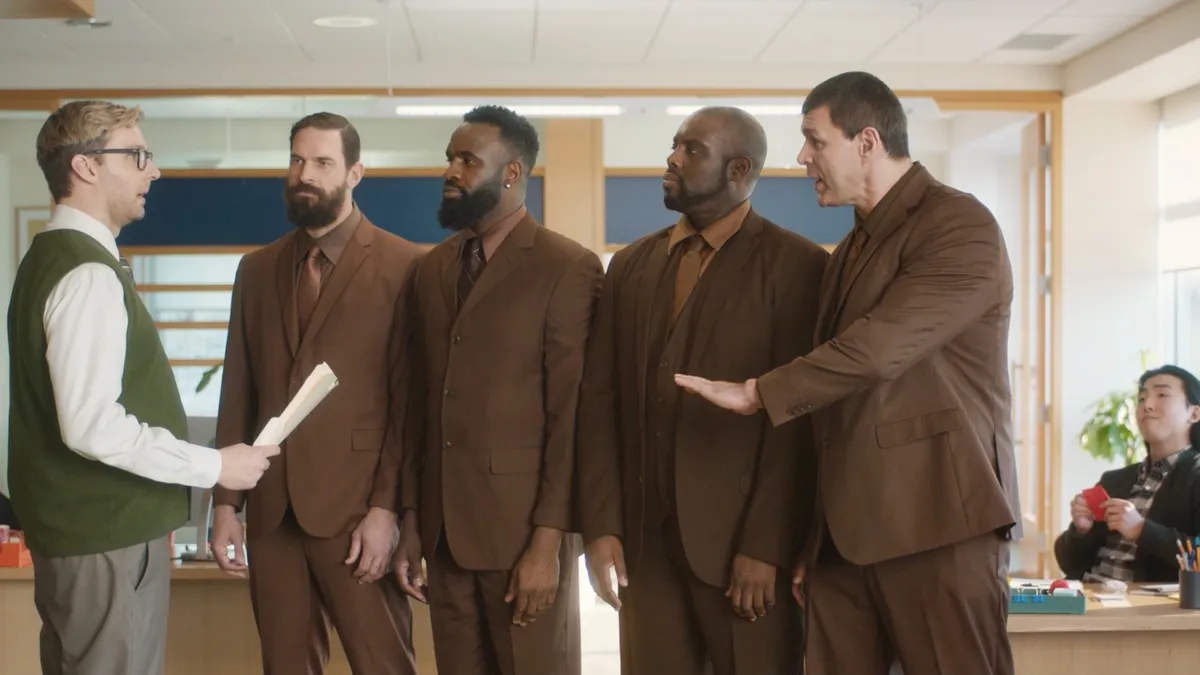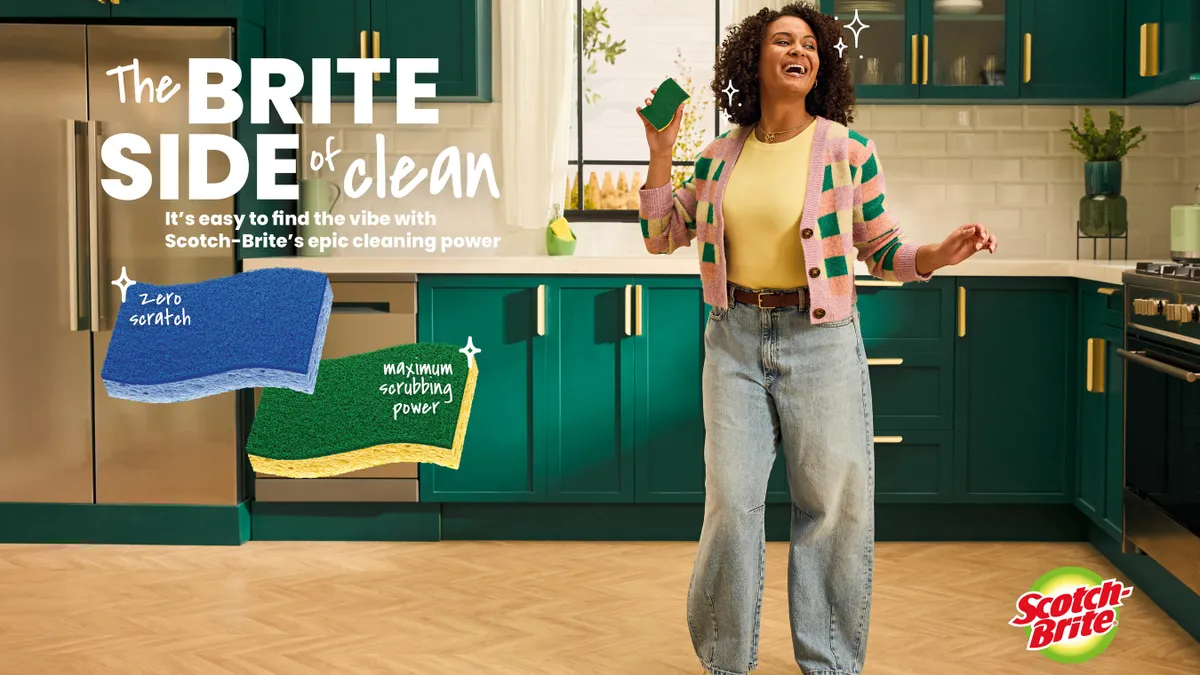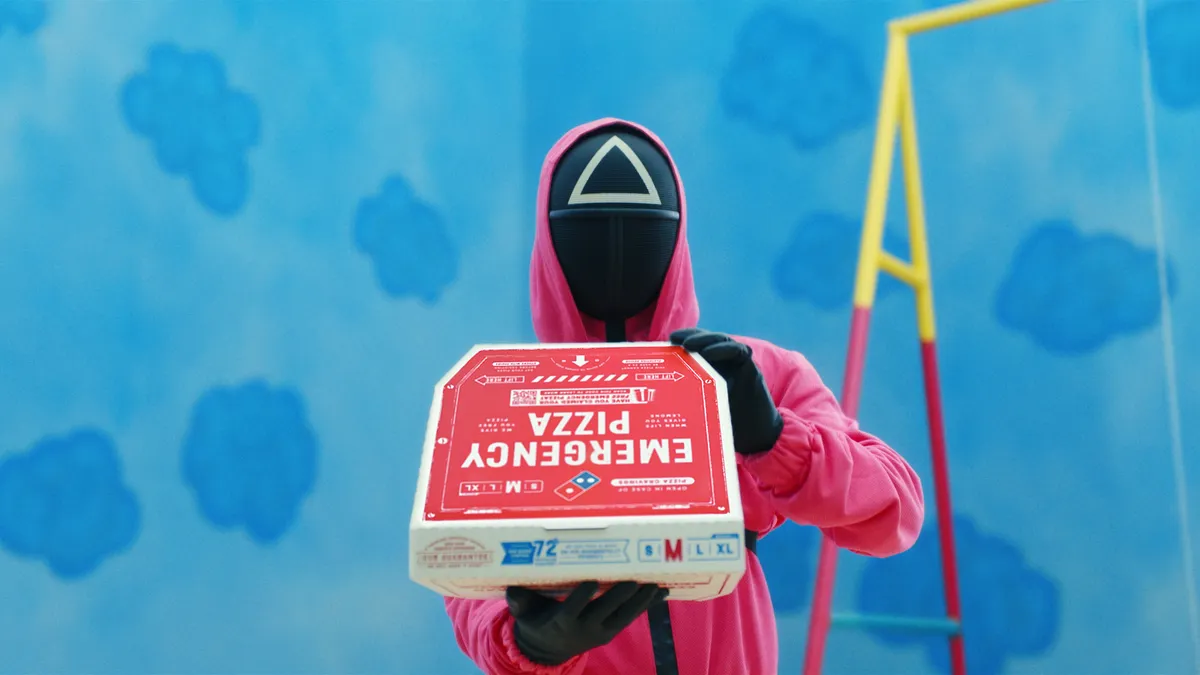Pepsi is aiming for precision while preserving scale with a new performance marketing campaign promoting its Zero Sugar cola. The effort launching today across TV, digital and radio leverages data and voice-over to customize more than 70 pieces of creative, with plans to add iterations on the concept throughout the year.
With "Zero Sugar, Zero Compromise," the soft drink marketer is angling to engage a specific set of buyers — men in their 30s and 40s — who are making the switch to sugar-free soda and also feeling stretched thin as they juggle responsibilities with work, family and the broader challenges of the pandemic. The guiding theme is that low-calorie soda is one area where men don't have to compromise, with Pepsi aiming to amplify that message during moments throughout the day when trade-offs are the most apparent, like during a date night that consists mostly of driving to the take-out window.
"We're getting very granular with our media buy," said Todd Kaplan, vice president of marketing at Pepsi. "What are those parts through his day where he's compromising and how do those stitch to actual media behaviors?"
Pepsi analyzed its internal data and matched the findings to Google Audience Insights to identify and validate both the behaviors it was looking for in its audience (the campaign targets everyone from hockey fans to late-show viewers and gamers) and also the proper context to reach those consumers. A late-show viewer, for instance, might be going to bed early and checking out clips of James Corden on YouTube instead of TV.
The brand then tapped Google's Director Mix technology to pair dozens of different voice-over recordings to its video asset, which is consistent throughout the campaign, depicting a can of Pepsi Zero Sugar getting cracked open and poured before the ad displays "Zero Sugar, Zero Compromise" and Pepsi's "That's What I Like" tagline.
"We've been playing in this personalization space and we've seen that campaign performance is really positively impacted when we have customized messaging," said Caitlin Coburn, director of brand engagement at Pepsi. "This is really just a double-down on that strategy."
Always-on approach
Pepsi is trying to avoid blanketing media with "Zero Sugar, Zero Compromise," with the granular approach intended to create a deeper emotional connection with consumers. This is the first time Pepsi has used voice-over as the key personalization lever in its work with Google, though the two companies have a long-standing partnership, per Coburn. The brand at the same is looking to avoid overexposure, where its target demographic is bombarded with the same creative as they switch between different channels.
"We're going to be managing frequency on this one for sure," Coburn said. "What's attractive about having a lot of this living within Google's ecosystem is that we can [manage] the amount of people who are being exposed to the same creative."
The campaign is running on some traditional channels, like TV and radio, where real-time changes are more difficult to make. But Pepsi is hoping that the impact is similar to digital outreach given the broad focus on data-driven marketing.
"We're really cherry-picking programming and genres and things like that and trafficking on a program level," Coburn said. "It's less automated but it's certainly being informed by the same level of data."
Pepsi will continue to evolve the messaging behind "Zero Sugar, Zero Compromise" as relevant cultural events for the product crop up. Activations are planned for the NFL Draft in April, but the simplicity of the campaign ensures Pepsi can stay reactive to unforeseen developments as well.
"Whether it's based on real-time things we're seeing and we want a quick turn ... we can build more pretty quickly," Kaplan. "Voice-over is a pretty easy thing to do. You can do it remotely and you can pop it in pretty quick."
A heavy push behind Pepsi Zero Sugar comes as zero-sugar beverages become an increasingly important part of parent company PepsiCo's growth strategy. Gatorade Zero jumped past $1 billion in retail sales last year, while zero-sugar variants of Pepsi and Mountain Dew, along with sparkling water brand Bubly, delivered a combined $750 million in retail sales, according to executive estimates shared on a call discussing fourth-quarter earnings earlier this month.
"This is an always-on kind of approach. It's going to be on throughout the year," Kaplan said of the latest Pepsi Zero campaign. "It's such a critical growth area for us as a brand and we think this is such a rich campaign."



